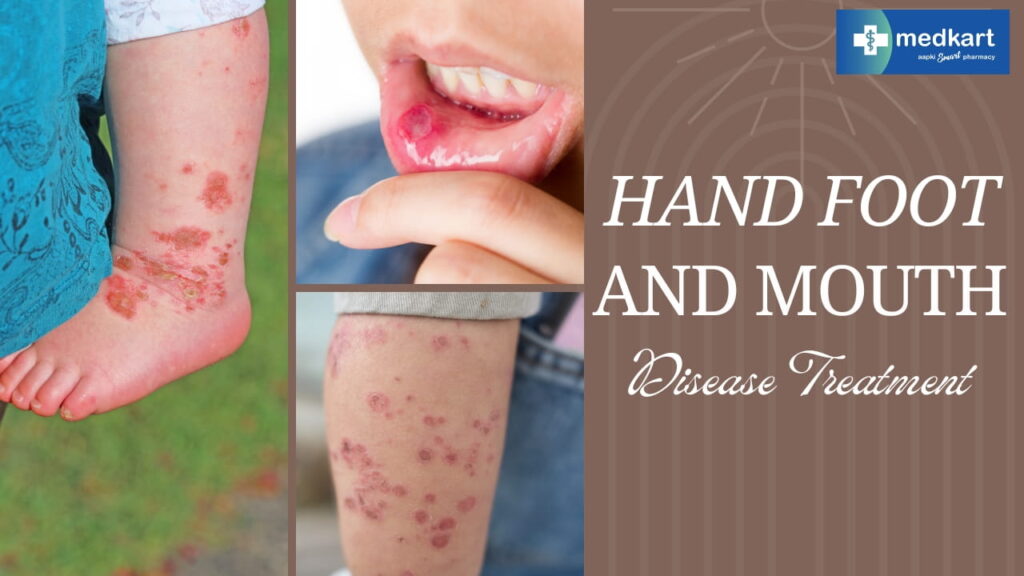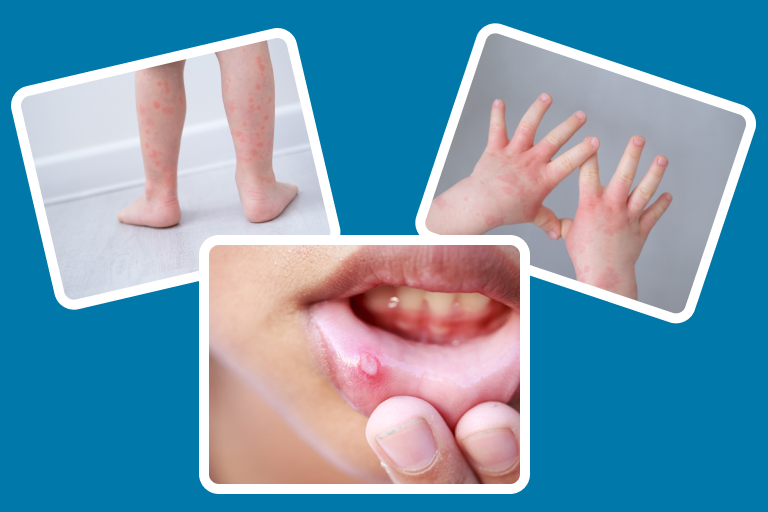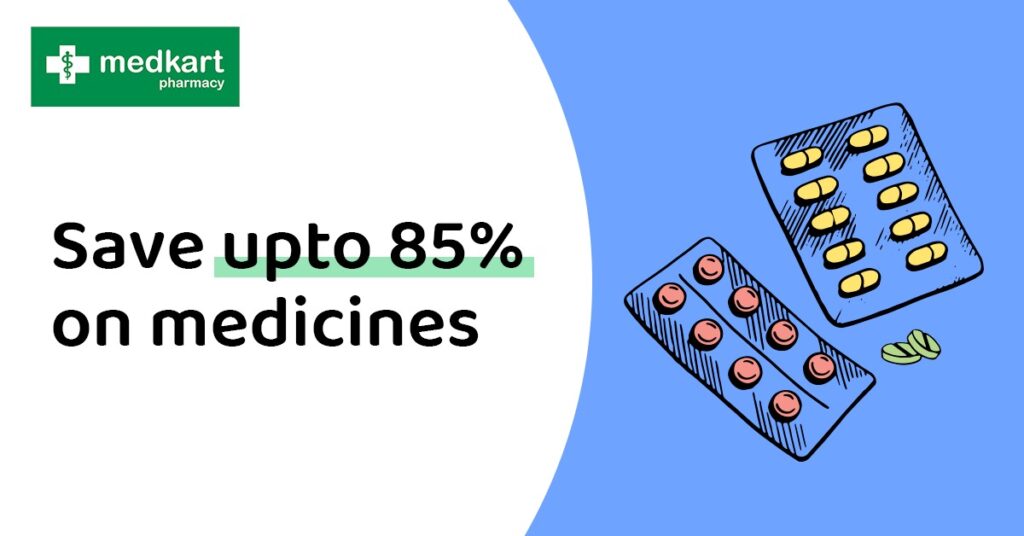Last updated on April 11th, 2025 at 01:20 pm
 Hand, Foot, and Mouth Disease (HFMD) treatment primarily focuses on alleviating symptoms and preventing complications. Over-the-counter pain relievers like acetaminophen or ibuprofen can help reduce fever and discomfort from mouth sores while staying hydrated with cool, soothing liquids and consuming soft, easy-to-swallow foods can aid in preventing dehydration and minimising discomfort during eating.
Hand, Foot, and Mouth Disease (HFMD) treatment primarily focuses on alleviating symptoms and preventing complications. Over-the-counter pain relievers like acetaminophen or ibuprofen can help reduce fever and discomfort from mouth sores while staying hydrated with cool, soothing liquids and consuming soft, easy-to-swallow foods can aid in preventing dehydration and minimising discomfort during eating.
Topical numbing agents may provide additional relief for mouth sores. Hand, Foot, and Mouth Disease (HFMD) stands as a prevalent viral ailment primarily impacting toddlers and youngsters under five years old, although it may manifest in older juveniles and adults as well. HFMD is caused by various strains of viruses, most commonly the Coxsackievirus.
It spreads through close personal contact, as well as through respiratory droplets from coughing or sneezing, and contact with contaminated surfaces. The virus can survive on surfaces for several days, making it highly contagious.
Symptoms Of HFMD
- Fever: Often the first sign of the illness, a fever may precede other symptoms.
- Sore throat: Painful blisters or ulcers may develop in the mouth and throat, making swallowing difficult.
- Rash: Small red spots or bumps may appear on the palms of the hands, soles of the feet, and sometimes on the buttocks. These may progress to fluid-filled blisters.
- Loss of appetite: Due to discomfort from mouth sores, children may refuse to eat or drink.
It’s important to note that not everyone infected with the virus will display all these symptoms, and some individuals may have a mild case with minimal or no symptoms at all.

Hand Foot and Mouth Disease Treatment
While there is no specific cure for HFMD, treatment focuses on relieving symptoms and preventing complications. Here are some effective treatment approaches:
Pain Relief: Over-the-counter pain relievers such as acetaminophen (Tylenol) or ibuprofen (Advil, Motrin) can help reduce fever and alleviate discomfort from mouth sores. Aspirin should be avoided in children due to the risk of Reye’s syndrome, a rare but serious condition.
Hydration: Encourage plenty of fluids to prevent dehydration, especially if your child has a fever or is reluctant to eat or drink due to mouth sores. Offer cool, soothing liquids such as water, diluted fruit juices, or popsicles.
Soft Foods: Stick to soft, easy-to-swallow foods to minimize discomfort when eating. Avoid acidic or spicy foods that may irritate mouth sores. Cold foods like yogurt or smoothies can provide relief.
Topical Treatments: For pain relief from mouth sores, topical numbing agents such as lidocaine or benzocaine can be applied to the affected areas. Be sure to use these medications as directed and consult with a healthcare professional if you have any concerns.
Isolation and Hygiene: Since HFMD is highly contagious, it’s essential to practice good hygiene to prevent the spread of the virus. Encourage frequent handwashing with soap and water, especially after using the bathroom or changing diapers, and disinfect commonly touched surfaces and toys regularly. Keep infected individuals isolated from others, especially young children and pregnant women, until they are no longer contagious.
When to Seek Medical Attention
In most cases, HFMD is a mild and self-limiting illness that resolves on its own within a week to ten days. However, complications can occur, particularly in rare cases or in individuals with weakened immune systems. Seek medical attention if you notice any of the following warning signs:
- High fever (above 102°F or 38.9°C)
- Symptoms indicating dehydration such as reduced frequency of urination, parched oral cavity, or feelings of sluggishness and lethargy.
- Difficulty breathing or swallowing
- Severe headache, neck stiffness, or irritability
- Persistent vomiting or abdominal pain
Your healthcare provider can evaluate your child’s condition and recommend appropriate treatment if necessary.
Conclusion:
While Hand, Foot, and Mouth Disease can be uncomfortable for children and caregivers alike, most cases can be managed effectively at home with supportive care. By following these treatment approaches and practicing good hygiene, you can help alleviate symptoms and prevent the spread of the virus within your family and community.
If you have any concerns or questions about HFMD or your child’s health, don’t hesitate to consult with a healthcare professional for guidance and support.
Read: What are Generic Medicines?
FAQs on Hand Foot and Mouth Disease Treatment
Q1. What is Hand Foot And Mouth Disease Treatment?
Hand, Foot, and Mouth Disease treatment primarily involves managing symptoms such as fever and mouth sores with over-the-counter pain relievers and topical numbing agents. It also includes staying hydrated with cool liquids and consuming soft, easy-to-swallow foods to prevent dehydration and minimize discomfort during eating.
Q2. What are the best over-the-counter medications for relieving symptoms of Hand, Foot, and Mouth Disease?
Acetaminophen (Tylenol) or ibuprofen (Advil, Motrin) can help reduce fever and alleviate discomfort from mouth sores.
Q3. Are there any topical treatments that can help with the pain from mouth sores in Hand, Foot, and Mouth Disease?
Yes, topical numbing agents such as lidocaine or benzocaine can be applied to the affected areas for pain relief.
Q4. How important is hydration in the treatment of Hand, Foot, and Mouth Disease?
Staying hydrated with cool, soothing liquids like water, diluted fruit juices, or popsicles is crucial to prevent dehydration, especially if fever or mouth sores are present.
Related Links:
- Gastritis Treatment
- Frozen Shoulder Treatment
- Fever after Covishield Vaccine Treatment
- Dry Cough Treatment
- Endometriosis Treatment
- Dog Bite Treatment
- Breast Cancer Treatment
- PCV in Blood Test
- Normal Hemoglobin Level in Female
- How to use Menstrual Cups?
- How to Remove Gas from Stomach Instantly?
- How to Reduce Period Pain?
- How to increase Testosterone Level?


